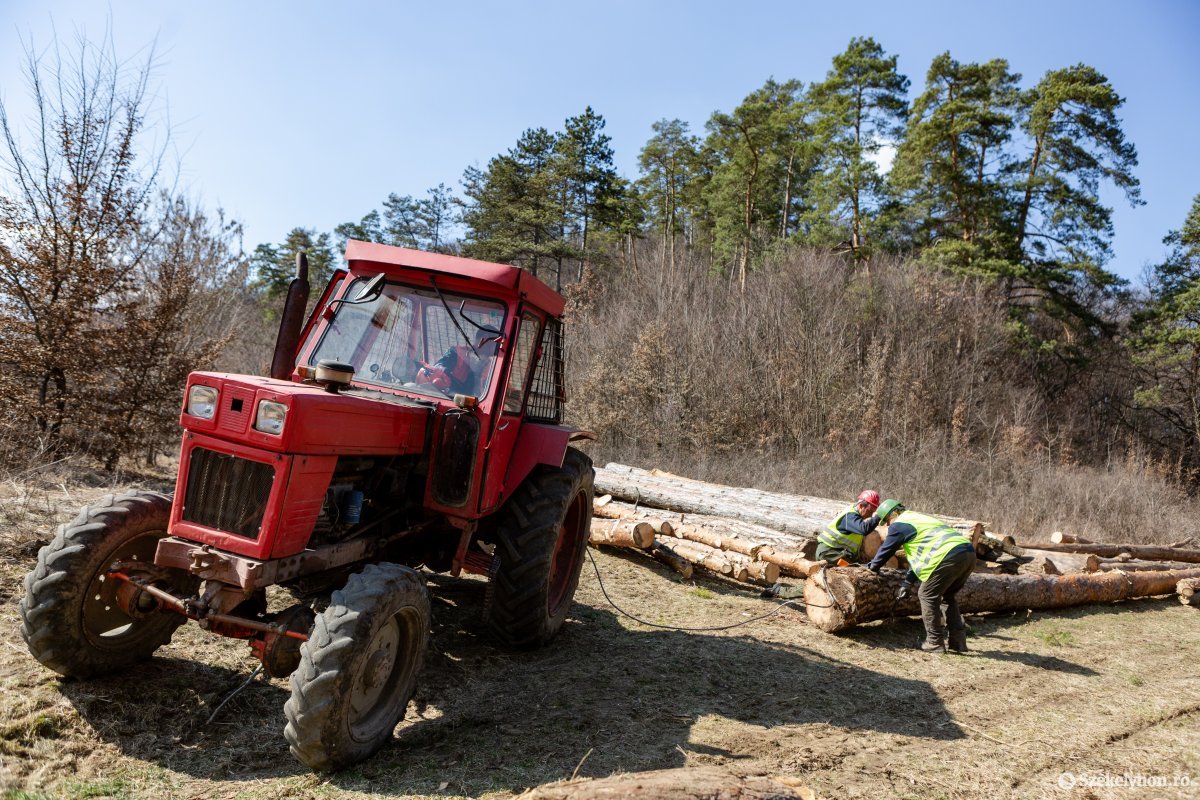In just over a year, the price of Romanian timber has doubled, surpassing prices in the global market. Due to the price hike, the majority of timber is now being imported; however, the locally exploited logs also have buyers. The price issue is complex, with bureaucracy, lack of professionalism, and a drastic reduction in forestry being among the reasons, according to Róbert András, forest engineer and manager of Zetelaka Erdőrendészet Rt.
The coronavirus pandemic has reshaped the global economy, including the price of timber, doubling the price of that produced in Romania. As a result, the biggest timber firm, Austrian Holzindurstrie Schweighofer, has imported roughly 5 million cubic meters of timber from Poland, Slovakia, Czech Republic, Austria and Germany to its timber-processing factory located in Réty/Reci, Kovászna/Covasna County.

The reason for importing timber instead of buying locally exploited raw material is simple: Even with all the shipping costs included, the imported timber is much cheaper than that available in Szeklerland and Moldova.
The pricing anomaly we see now is multi-layered and not accidental, despite Romania having 7 million hectares, Róbert András told Hungarian news portal Krónika. Among the main driving factors are administrative: Due to the NGO’s lobbying, the forests administered by professionals are becoming smaller each year, as the forest area of the Natura 2000 territories grow.
The problem is that the fate of these forests is decided by non-professionals in Bucharest, András said. For example, not so long ago, 14,000 hectares of forest were administered by 30 foresters, but it is now maintained by two employees, so you can imagine the consequences, András explained.
The situation didn’t change with the nomination of the new Minister of the Environment Barna Tánczos, a member of The Democratic Alliance of Hungarians in Romania (known by its Hungarian acronym RMDSZ). The Natura 2000 areas are selected without any preparatory studies, and sometimes people receive the notification through a ruling from Bucharest that their land was seized and they will get some sort of compensation.

The apocalyptic image painted by green NGOs of Romanian forestry is a lie, András says, and anyone who understands forestry will see this immediately. However, the decision is made by public servants, without the input of the locals or professionals.
The biggest bureaucracy of all times has been established in Romanian forest management, costing foresters a lot of time and money. Fieldwork is now done exclusively by foresters, while the decision-makers sit in their offices in Bucharest. “It is the duty of the local professionals to decide where and what kind of intervention a forest needs. If this power is taken from foresters, it will have devastating effects on the overall forest management,” András said.
NGOs financed by Bruxelles and governing bodies are trying to reshape the efficiently running local forest management, which year-over-year means a rising burden on forest owners and forests. With this in mind, the price hike on Romanian timber is no surprise. However, this won’t last long, according to András. By the end of November, we will likely see a 30–40 percent drop in timber prices.
Title image: Székelyhon